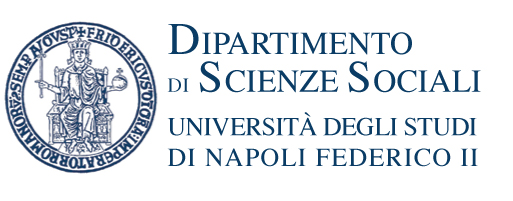Eric Mangez
Description
The lecture aims at bringing clarity in the academic and political discourse on education and Europeanisation, which is shaped by a specific vocabulary, ranging from governance to government and from Europeanization to globalization. The lack of clarity about these concepts can only lead to confusion.
In the course we will read a series of social theories (including specifically Bourdieu and Luhmann) and contemporary theoretical developments (Nassehi, Stichweh, Jessop) so as to reach better conceptual clarity. Two key problems will be examined in this respect: debates about the distinction between globalization and Europeanization; and the distinction between governing and governance.
1) Globalization and Europeanisation
The course will interrogate the concepts of globalization and Europeanization and examine how they relate to each other. One possibility is to think of Europeanization as an instance of globalization, as if the two processes were “of the same kind”, simply operating at different levels. One, however, can also think differently about these concepts. From a system-theory point of view globalization and Europeanization must be seen as quite distinct processes, even as processes that run against one another. The process of globalization, as has been argued by Luhmann, is a logical outcome of functional differentiation (starting (or being accelerated) in the 18th century). Functional differentiation results from a radical change in the way societies organize themselves. Old borders (based on nation state, social status, territory, language, etc) slowly become less and less relevant with the development of functional differentiation: they no longer restrain the development of (increasingly) distinct systems (including education). From a sociological perspective one could argue that globalization emerges from functional differentiation (and leads to a world where all that matters is increased performances). But it is not the case with Europeanization. Europeanization is a different thing. For one thing it is linked to notions like: territory, project, culture, purpose, consensus, identity. None of which have anything to do with globalization per se. So Europeanization may be conceived as an attempt to re-install some sort of (non-functional) differentiation within an increasingly performance-oriented global(ized) world. One could then even conceive of Europeanization as potentially resisting some aspects of globalization
2) Governing and governance
The literature on education and Europeanisation often uses notions such as government, governing, governance, planning. However, quite often these notions seems interchangeable. In particular, several authors seem to develop a rather open, loose understanding of the notion of governance. It may then even be the case that governance is equivalent to “governing” or “policy” or “politics” or even “government”. In the course we will argue for a much more delimited understanding of governance (as developped by Luhmann, and further elaborated by Jessop and others). Governance will be distinguished from all other notions (especially notions such as government, policy, plan, governing, agenda). It will constructed as a specific process that emerges when one realizes that government is an impossibility: that this or that policy field is ‘organized without an organizer, coordinated without a coordinator’, and where governance rises from mutual adjustments, learning and local interactions in a (continuously) re-emerging order (Jessop 1997, Urry 2005). Governance is where governing has no top and no center.
Key texts of the syllabus will be:
Bourdieu, P. (1988). Homo Academicus, Cambridge: Polity
Bourdieu, P. (1996). The Rules of Art: Genesis and Structure of the Literary Field. Cambridge: Polity
Hilgers M. and Mangez E. (2014). Introduction to Pierre Bourdieu’s Theory of Fields in Hilgers M. and E Mangez, Bourdieu’s Theory of Social Fields: Concepts and Applications, Routledge Advances in Sociology.
Jessop, B. (1997). The governance of complexity and the complexity of governance: preliminary remarks on some problems and limits of economic guidance. Beyond market and hierarchy: interactive governance and social complexity, 95-128.
Luhmann, N. (2012). Theory of society: Volume 1. Stanford, California: Stanford University Press.
Luhmann, N. (2013a). A sociological theory of law. London: Routledge.
Luhmann, N. (2013b). A systems theory of religion. Stanford, California: Stanford University Press.
Luhmann, N. (2013c). Theory of society: Volume 2. Stanford, California: Stanford University Press.
Luhmann, N. (2013d). Introduction to systems theory. Cambridge: Polity.
Urry, J. (2005). The complexity turn. Theory Culture and Society, 22(5).
Impact
The lecture will provide participants with a deeper understanding of the distinctiveness of Europeanisation as a process that is increasingly interesting the field of education, as well as with theoretical resources to think about key distinctions as Europeanisation and Globalisation and governing and governance. In this respect it will be a key milestone in the SUSEES project and its materials will be provided to participants of all the three edition as a frame to be used to understand the potentials of the introduction of a EU-angle in the study of education. Participants will be expected to become able to apply some of the insight discussed on their current research work on a EU-related aspect of education.


